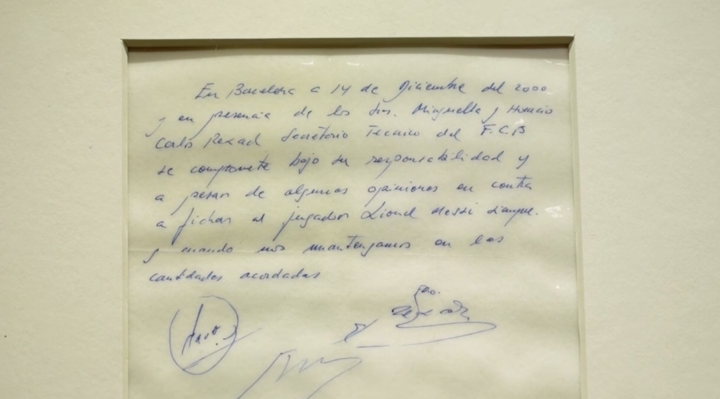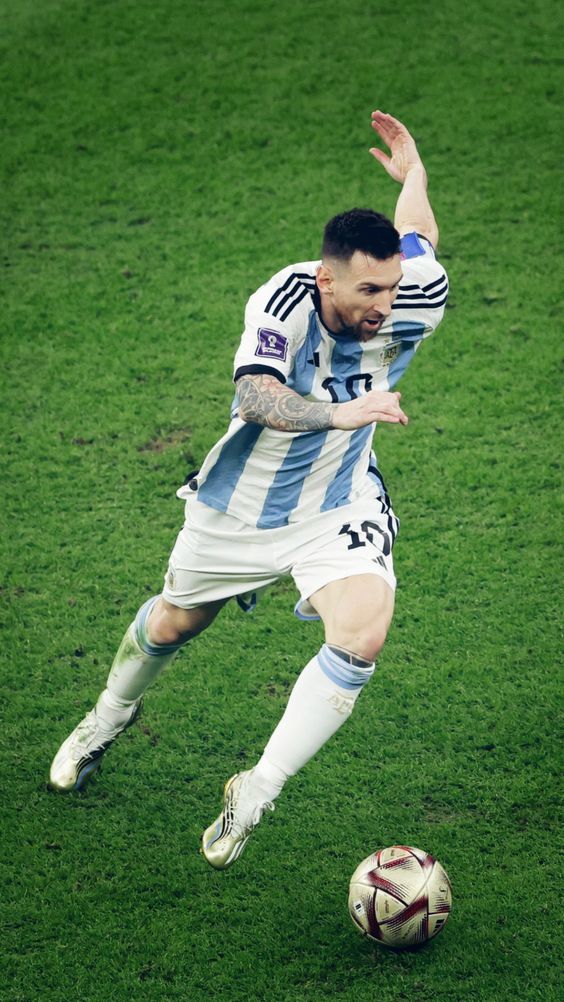A seemingly simple napkin has sparked a complex legal battle involving one of football’s greatest legends, Lionel Messi. This particular napkin, which holds historical significance as the first “contract” Messi signed with FC Barcelona, has become the center of a dispute that has captivated the sports world and beyond.

A seemingly simple napkin has sparked a complex legal battle involving one of football’s greatest legends, Lionel Messi. This particular napkin, which holds historical significance as the first “contract” Messi signed with FC Barcelona, has become the center of a dispute that has captivated the sports world and beyond.
The Napkin’s Origin
The story behind the napkin dates back to September 2000, when a young Lionel Messi, accompanied by his father Jorge, met with Carles Rexach, then-technical director of FC Barcelona. Impressed by Messi’s talent but lacking proper documentation at the moment, Rexach quickly drafted an agreement on a napkin, committing Barcelona to bringing Messi to their youth academy. This napkin marked the beginning of Messi’s legendary career with the club.
Auction Frenzy
Recently, the napkin was put up for auction, generating immense interest from collectors and fans alike. It eventually sold for nearly one million USD, highlighting its significance as a piece of football history. However, the high-profile sale also attracted controversy and legal complications.
Ownership Dispute

The legal battle over the napkin’s ownership began when multiple parties claimed rights to the artifact. On one side, the seller, who had possession of the napkin, asserted their legal right to auction it. On the other side, representatives of FC Barcelona and Messi’s family argued that the napkin was an integral part of Messi’s heritage and the club’s history, and therefore should not have been sold without their consent.
Legal Arguments
The primary legal arguments revolve around the provenance and rightful ownership of the napkin. The seller claims to have acquired the napkin legally, with documentation supporting their ownership. Meanwhile, FC Barcelona and Messi’s camp argue that the napkin holds significant historical value, making it a unique item that should be preserved within the club or returned to Messi’s personal collection.
Additionally, there are concerns about the ethical implications of selling such a historically important artifact. Messi’s legal team has emphasized that the napkin symbolizes more than just a contract; it represents a pivotal moment in Messi’s life and career, thus warranting its return to the rightful owner.
Court Proceedings

As the dispute escalated, the matter was taken to court. Legal proceedings are underway to determine the rightful ownership of the napkin. The court’s decision will hinge on the presented evidence, including the authenticity of the seller’s documents and the historical significance claimed by FC Barcelona and Messi’s family.
Impact on Football Memorabilia
This legal battle has broader implications for the world of sports memorabilia. It highlights the complexities involved in the ownership and sale of items with significant historical and emotional value. The outcome of this case could set a precedent for future disputes over sports artifacts, influencing how such items are handled and preserved.
Conclusion
The legal battle over Messi’s napkin underscores the profound impact that seemingly simple objects can have on the sports world. As the court deliberates, fans and collectors alike are closely watching, eager to see how this dispute will be resolved. Regardless of the outcome, this case serves as a reminder of the deep connections between sports history and the personal artifacts that carry its legacy.





